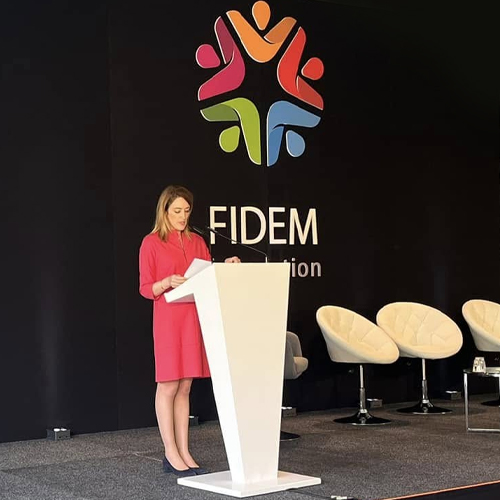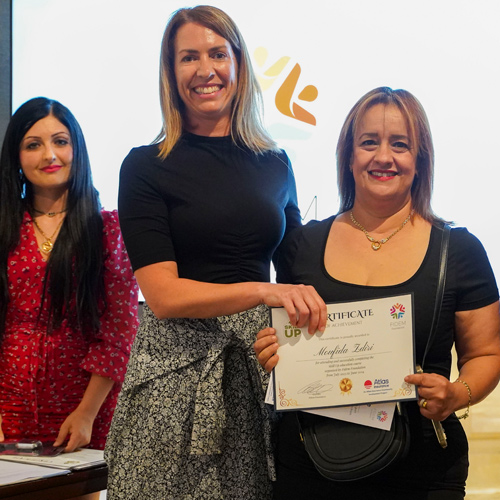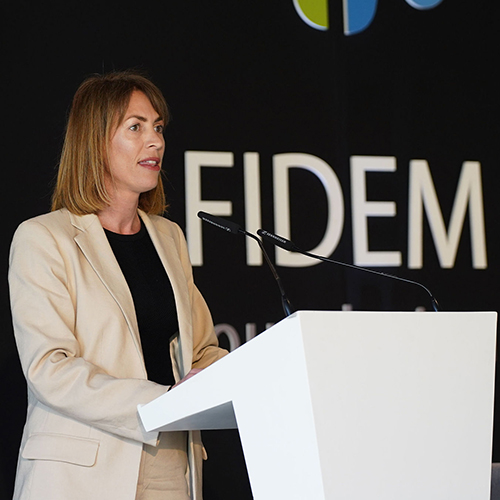An old adage is attributed to Lao Tzu: give a man a fish and you feed him for a day; teach him how to fish and you feed him for a lifetime.
It is, effectively, the definition of education in its broadest sense, an education that enriches the mind, gives purpose to a person’s life and, everything else being equal, is conducive to a good standard of living.
But life is never that simple. Anyone can learn to fish but if they cannot obtain the tools to do so, they go hungry. And that hunger is growing.
Alarming headlines indicate that the rising cost of living in this post-pandemic era is hitting single families and elderly couples the worst.
The recent story of a single mother of four, illiterate and unemployed, trying to scrape by on meagre benefits but having to rely on charity to make it to the end of the month is not uncommon. Just check the lines outside the many food banks or ask the indefatigable chefs at Victory Kitchen.
Severe material deprivation has risen to 5.5% – 28,000 people in Malta cannot afford certain basic needs. A recent survey revealed 6.1% of the population cannot afford the most basic of needs like replacing worn-out clothes with new or owning two pairs of shoes.
At FIDEM Charity Foundation, we have seen this rising trend in poverty for several years, even before the pandemic. That is precisely why FIDEM was set up, to give practical assistance to vulnerable people, mostly women and adolescent girls, who struggle to unlock their full potential because they cannot access the material help that would improve their standard of living.
There is no straightforward magic wand to resolving poverty. Over the decades, successive Maltese governments have invested in social welfare programmes. But seemingly it is never enough. We don’t see beggars on the streets. And you can be forgiven for thinking the headlines on poverty may be “exaggerated” when restaurants are fully booked and shopping centres packed. But our experience at FIDEM shows a different reality.
During the pandemic, FIDEM was inundated with requests for assistance and cries for help with even the most basic of necessities, like school uniforms and stationery supplies.
If these people do not find the help they need, what happens to their children? If they cannot afford to pay for a training course, or buy a laptop or textbooks, how can they break free of the vicious circle that stifles their standard of living?
Is school preparing tomorrow’s adults adequately with the necessary life skills to fulfil their potential to the best of their individual abilities? Is the system truly an educational one in the widest possible definition of the term? Is it a system that nurtures students’ different strengths and abilities or is it forcing them into one box defined by academic strictures that limit a child’s development, exposing their weaknesses and making them feel a failure before they have even started out in life?
Yes, there is a direct link between poverty and education. If tomorrow’s adults are not properly nurtured through a holistic education system that helps them blossom, they will literally end up on the streets and we would have failed them.
Finland’s much lauded education system is based on the primary ideal that “education should be an instrument to balance out social inequality”. Switzerland focuses on teaching children to be self-sufficient before tackling the ABCs.
While the rate of early school-leavers in Malta has halved from 33% in 2005 to 16.7% in 2020, that figure is still too high – the second highest in Europe.
Malta had pledged to bring that figure down to 10% by 2020. We’re still some way off. Why is this happening?
FIDEM’s Educate to Empower programme is a direct response to this problem. It was born out of our belief that education, in its broadest sense, can transform a person’s life by empowering them to make the necessary changes that will improve their standard of living.
We do this in a holistic manner, providing mentorship as well as emotional and mental support when needed. Since its launch in 2018, the programme has helped over 50 women and adolescent girls achieve just that.
They have followed courses in hairdressing, bus driving, accountancy and management to name but a few and we have watched them grow independent and strong, fulfilled with the satisfaction they now have the ability to put food on the table and clothe their children.
They asked for a chance in life and we gave them the opportunity to take those first few steps in a new direction.
But we could do more if we had access to more resources. FIDEM, like all other charities and NGOs, relies on generous financial assistance from our partners to fulfil our mission.
We often work with high-profile established private companies, which understand that, by helping us empower these women through education, they are actually helping them become more valuable members of the workforce. It is in all our interest to ensure that everybody has access to the tools that lead to a decent standard of living.
However, large companies that have the resources and the willingness to help charities in their endeavours receive no tax benefits for their generosity. In the 2016 budget, the government had introduced a 150% tax deduction on donations to culture but this was never extended to donations to other charitable organisations outside the arts sector. What are we waiting for to extend this law to not-for-profit organisations dealing with social deprivation?
Poverty affects us all, whether directly or indirectly. We cannot turn a blind eye and pretend it only happens to “other people”, nameless, faceless, anonymous people.
More than a social responsibility to help others, we need an education system that truly empowers children to grow into self-fulfilled adults that contribute to society.
We need to go back to the roots, not a U-turn but a change in direction before we crash headlong into deprivation and despair.
This article was taken from Times of Malta, click here to view











